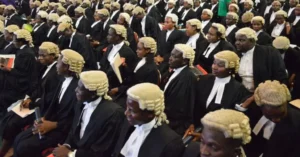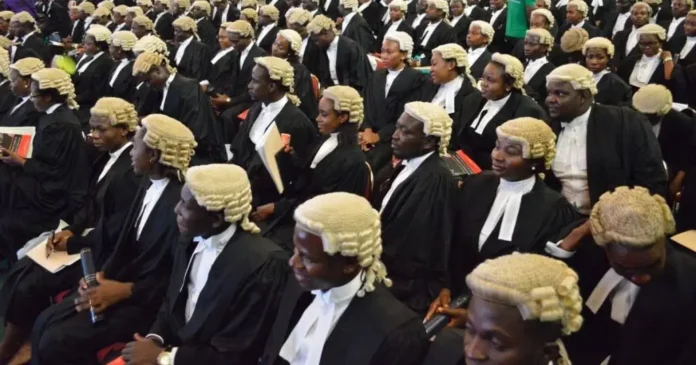In a recent development, lawyers have raised concerns regarding the appointment of Ms. Omolola Bridget Oloworaran as the new Director-General of the National Pension Commission (PenCom). According to legal experts interviewed by Nairametrics, Oloworaran’s appointment may not align with the requirements stipulated in the Pension Reform Act of 2014, which governs the administration of PenCom.

The lawyers argue that Section 26 of the act explicitly states that the President should appoint a Director-General who possesses “15 years cognate experience in pension matters.” They emphasize that this experience should be specifically related to working in a pension fund administrator (PFA) or a pension fund custodian (PFC). However, Oloworaran’s career profile does not indicate any significant experience in the pension field.
Barrister Frank Tietie, a public interest lawyer, asserts that someone with experience in legal practice, banking, or insurance, which are loosely related to pensions, cannot be considered to have cognate experience in pension matters. He emphasizes that pension matters primarily involve the management of retirement funds to ensure the welfare of retired workers, which requires expertise beyond general monetary issues.
Barrister Maxwell Opara echoes Tietie’s sentiments, highlighting that the appointment of a person without 15 years of pension-related experience as the PenCom DG can be legally challenged. Opara emphasizes that the President does not have the power to override the Pension Reform Act, which was enacted by the National Assembly. He argues that the president must adhere to the subsidiary legislation and appoint someone with the required qualifications outlined in the act.
Constitutional lawyer Chief Festus Ogwuche further supports the legal arguments, stating that it is unlawful for the President to appoint someone without the necessary experience in pension matters as the DG of PenCom. He emphasizes that the president’s powers to appoint, as stated in Section 171 of the 1999 Constitution, must be subject to other specific laws validly made under the same Constitution.
It is important to note that Ms. Oloworaran has an extensive background in finance and banking, with over 15 years of experience in the financial services industry. However, critics argue that this experience does not qualify her to lead PenCom, as it lacks the required focus on pension matters.
The appointment of past PenCom DGs aligns more closely with the provisions of the Pension Reform Act. For instance, Aisha Dahir-Umar, the immediate past DG, had been involved in pension-related matters since serving on the Pension Reform Committee in 2003. Similarly, Chinelo Anohu-Amazu, a lawyer, played a significant role in introducing the Contributory Pension Scheme through the Pension Reform Act of 2004.
With the legal concerns raised by experts, it remains to be seen whether the appointment of Ms. Oloworaran will be confirmed by the Nigerian Senate. If the appointment proceeds, it may raise questions about the Senate’s role as a check and balance on executive appointments.
It is crucial for the Senate to consider the legal requirements outlined in the Pension Reform Act and evaluate whether the appointee has the necessary qualifications and experience in pension matters. This will ensure that PenCom is led by an individual who can effectively regulate and administer the Nigerian Pension Industry, safeguarding the interests of retired workers and ensuring the efficient management of pension funds.




